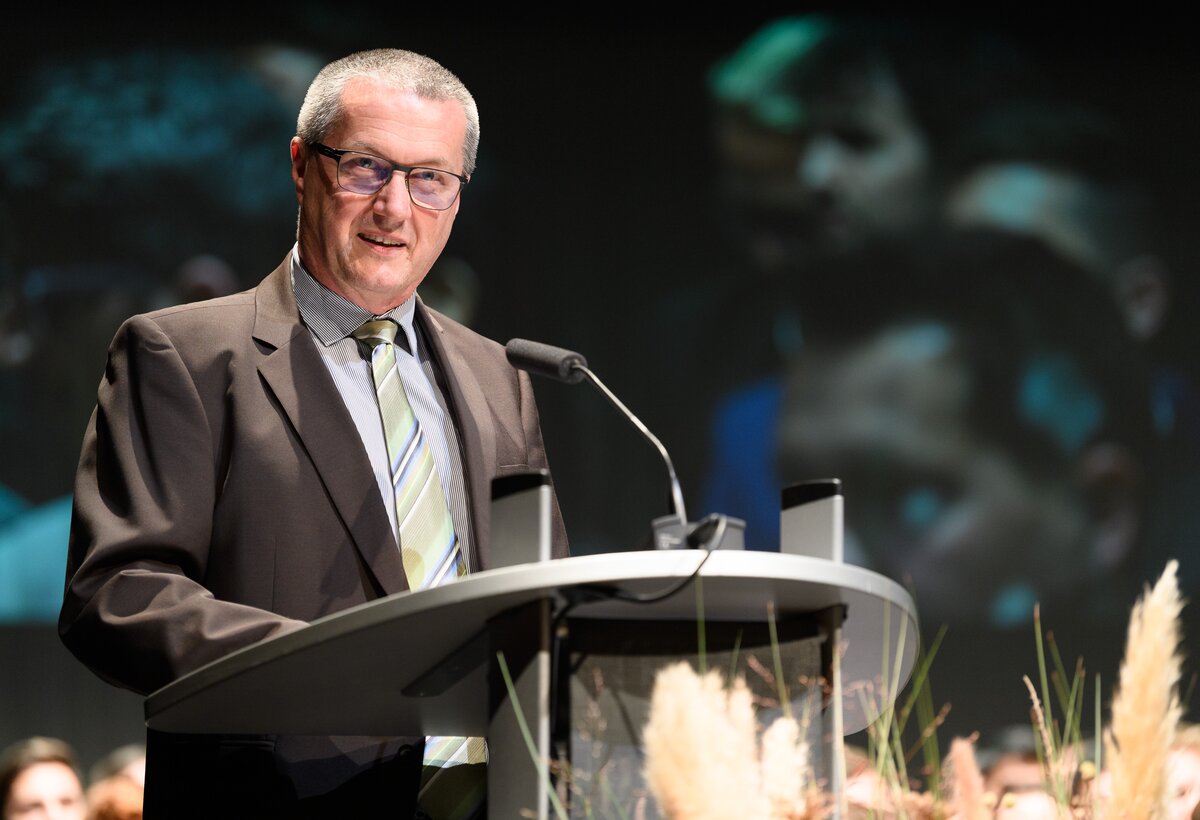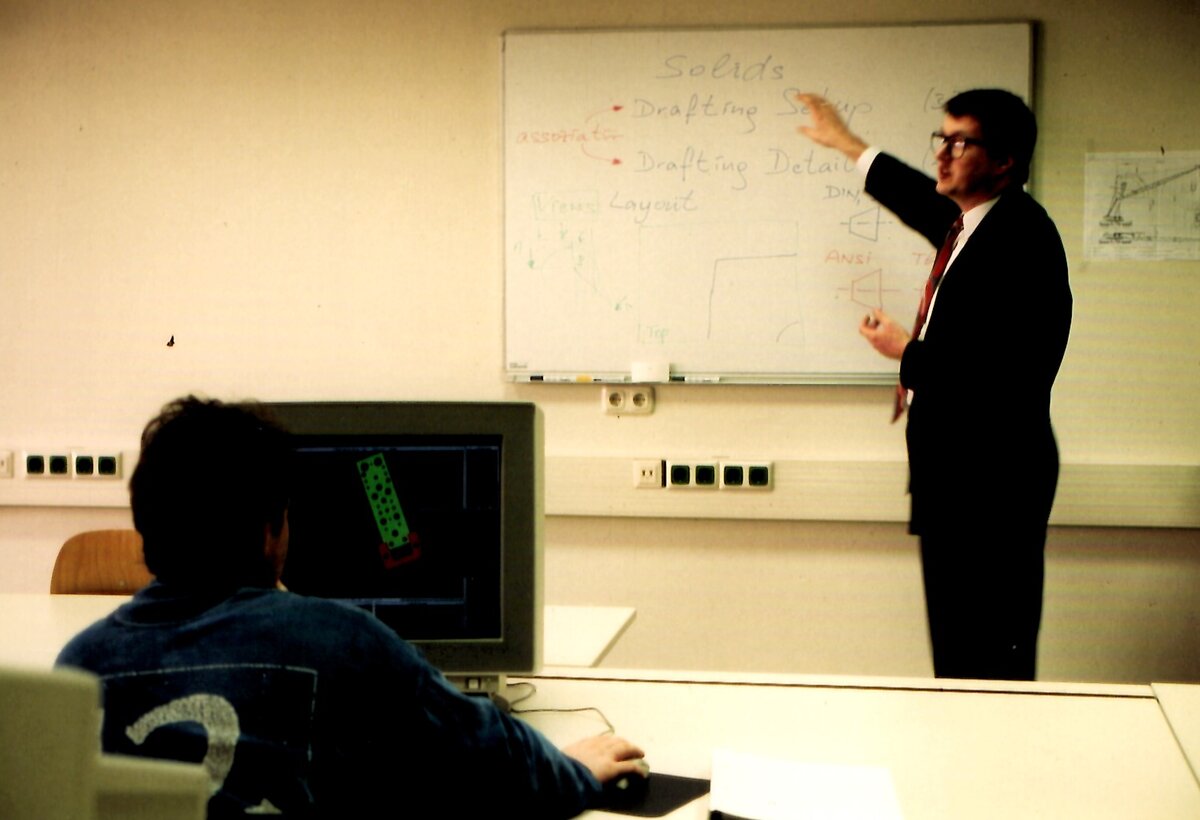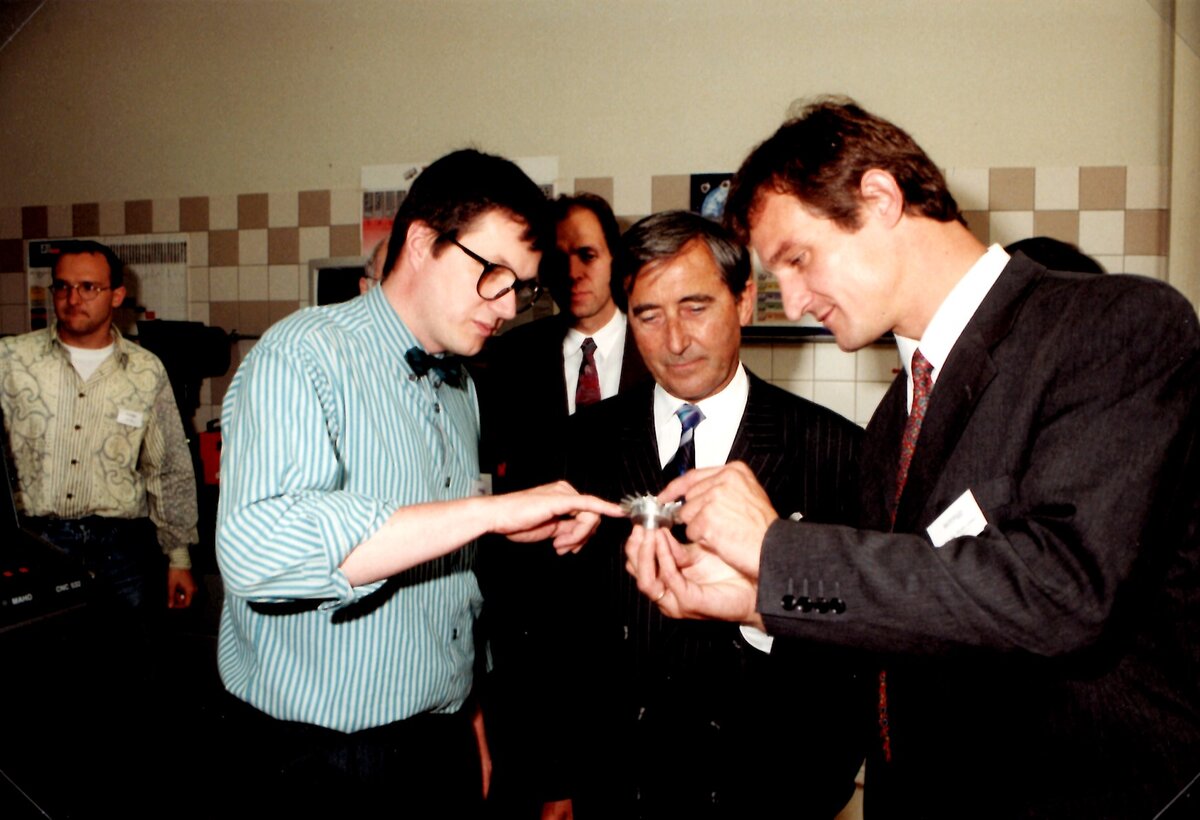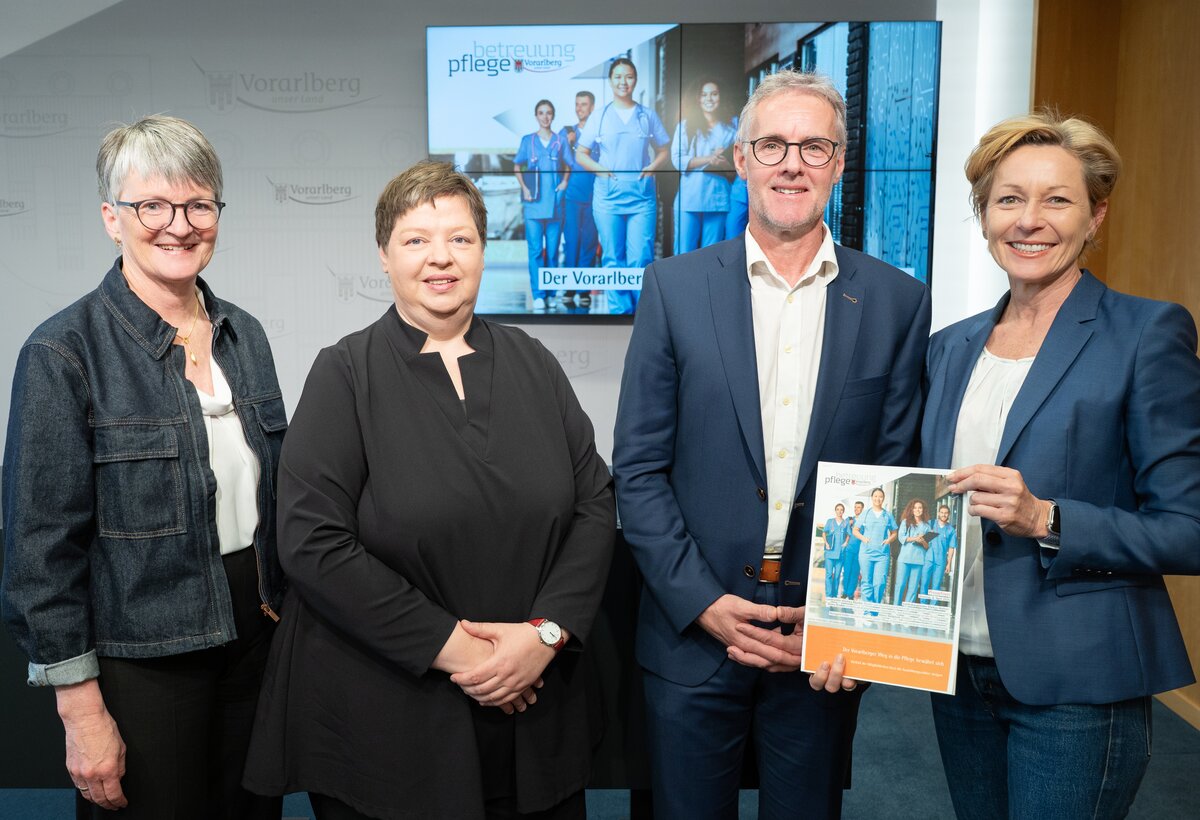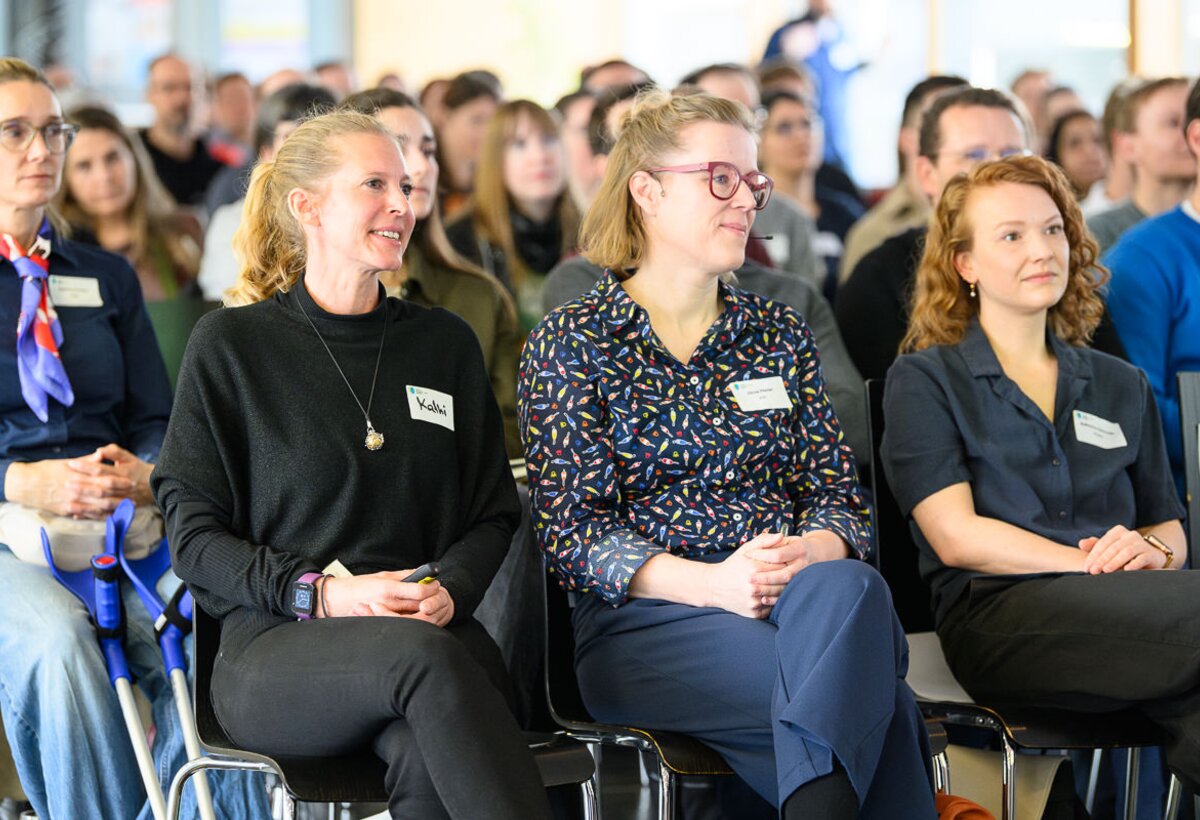Interview Johannes Steinschaden
11.04.2025In a few weeks, Johannes Steinschaden, programme director of Mechatronics, will begin a new chapter in his life with his retirement. For more than 30 years, he has been committed to the FHV in various functions. Before the Lower Austrian hands over to his successor Benedikt Reick, we take a look back with him at the beginnings and developments of the university over the years.
The credo of Johannes Steinschaden and his team has always been to "listen in" to industry and Management. This is why his degree programme has continued to develop in the direction of engineering. He is convinced that modern products are not only created through the courage to innovate, but above all through knowledge of mathematics and physics. The Bachelor of Mechatronics and Master of Mechatronics degree programmes lay the foundations for success in industry.
A brief look back at your beginnings at the FHV?
Johannes Steinschaden: I started on June 1, 1993 at the Technikum Vorarlberg, at the site of the new textile school in Höchsterstraße. I became aware of this position - advertised as a lecturer - through an advertisement in the Standard. The university management at the time, Markus Linhart, the highest scientific official in the Vorarlberg provincial government at the time, Hubert Regner, and the provincial councillor at the time, Liesl Gehrer, often traveled to Vienna. I signed my employment contract at Cafe Central in Herrengasse in the first district.
Looking back, how would you describe the start?
Johannes Steinschaden: Right from the start, the aim was to offer students the best. There were surprisingly few rules and instructions. Nevertheless, the rules of the game were surprisingly clear. Of course, our first years also had to deal with stumbling blocks, but we all pulled together.
How do you think the university has developed since then?
Johannes Steinschaden: For the students, the new building in 2005 in particular has been extremely beneficial. They were previously in a technical college building and now finally really had a university. The technical laboratories, now with 24/7 access, have opened up completely new opportunities. Today, the university is broadly positioned with research centres and a bouquet of degree programs.
How have the degree programmes developed over time?
Johannes Steinschaden: I was even still in charge of the diploma course, then called Technical Production Management. My lecturers and I saw the changeover to the bachelor's/master's system as an opportunity to introduce something new into the degree program. We have always listened to industry and Business and Management and therefore focused the course more and more on engineering. Modern products require a really deep understanding of electronics, Mechanical Engineering and programming. You can't do that without physics and mathematics. It is no longer enough to simply have the confidence to do something. Without being able to validate innovations in advance through simulations and calculations, it is simply too expensive and too time-consuming. Today, we create the conditions for success in industry in the bachelor's degree in Mechatronics and especially in the master's degree in Mechatronics.
How have the students developed over the years?
Johannes Steinschaden: What has always impressed me is the development of the students from entry to graduation - both professionally and personally. The effort to get more women into technical studies has always been a major concern of mine. Together with employees and external partners, such as the Federation of Austrian Industries, the Vorarlberg Chamber of Commerce, the VEM and politicians, we have been actively participating in campaign days for decades, for example. Nevertheless, we have not succeeded in significantly increasing the proportion of women in Engineering and Technology. However, the topic remains important, even for my successor Benedikt Reick. In our view, there cannot be enough female engineers with new perspectives and impulses. In any case, female engineers have very good career opportunities and exciting prospects for the future.
How have you been able to develop in the workplace at the FHV?
Johannes Steinschaden: Both as a teacher in the first almost seven years and as a programme director (and teacher) in the more than 25 years that followed, I really appreciated the fact that I could be very open in terms of content and organization. The standard of the course was always high. Of course, this is also thanks to the great commitment of the lecturers, the staff in the laboratories and in the administration.
What are you proud of?
Johannes Steinschaden: Of the numerous alumni and the FHV's research centres, whose findings enable a direct transfer into teaching. What will you miss most after your time at the FHV? Johannes Steinschaden: Working with people and the people at the FHV. What plans do you have for your retirement? Johannes Steinschaden: Definitely none. What do you wish the FHV for the future? Johannes Steinschaden: Committed students, lecturers, researchers and staff.
Thank you for the interview.





